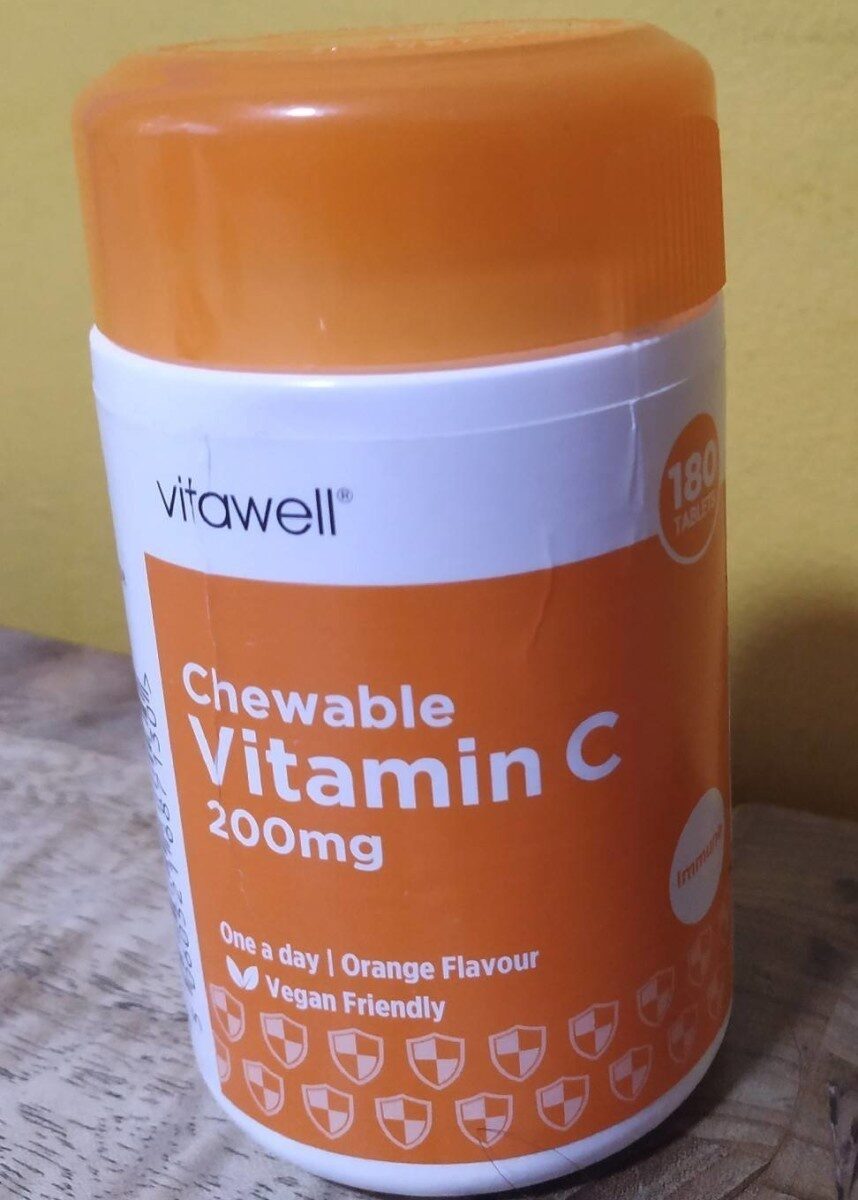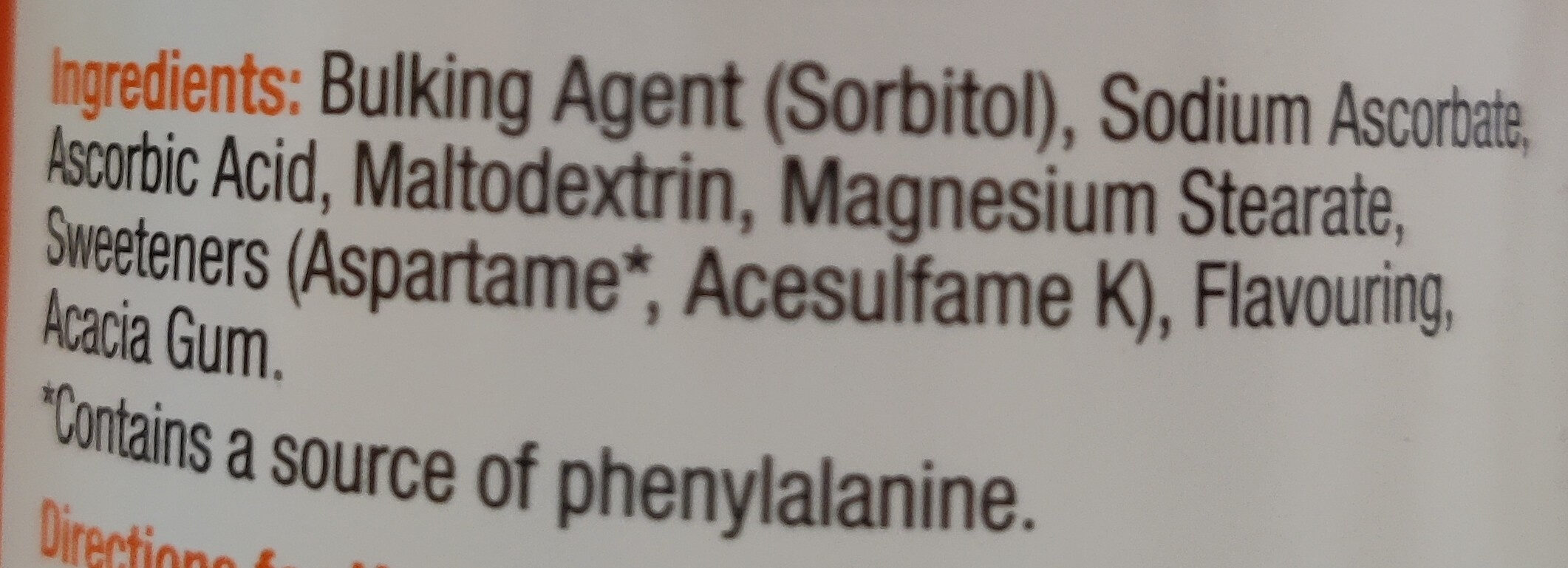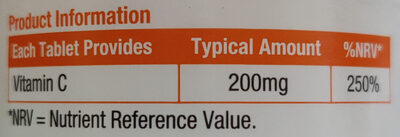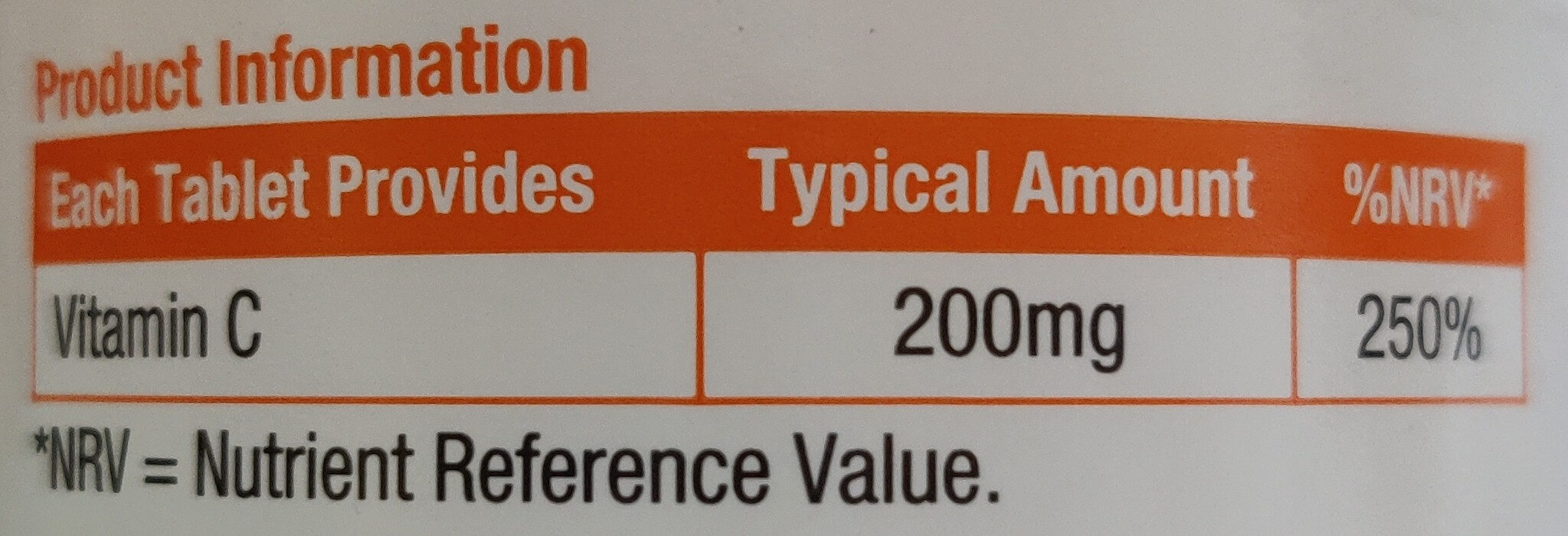Chewable Vitamin C - vitawell - 180 tablets
This product page is not complete. You can help to complete it by editing it and adding more data from the photos we have, or by taking more photos using the app for Android or iPhone/iPad. Thank you!
×
Barcode: 5060521687130 (EAN / EAN-13)
Quantity: 180 tablets
Packaging: Plastic
Brands: Vitawell
Categories: Dietary supplements, Vitamins
Labels, certifications, awards: Vegetarian, No artificial preservatives, Vegan, Contains a source of phenylalanine, No artificial colors, No artificial colours and preservatives
Stores: Lidl
Countries where sold: Ireland, United Kingdom
Matching with your preferences
Environment
Packaging
Transportation
Report a problem
Data sources
Product added on by kiliweb
Last edit of product page on by packbot.
Product page also edited by frazerclews, openfoodfacts-contributors, yuka.sY2b0xO6T85zoF3NwEKvll5IUIbdpg3-aS3jiWuC6MacILjrOv1ys4T3Iag.








